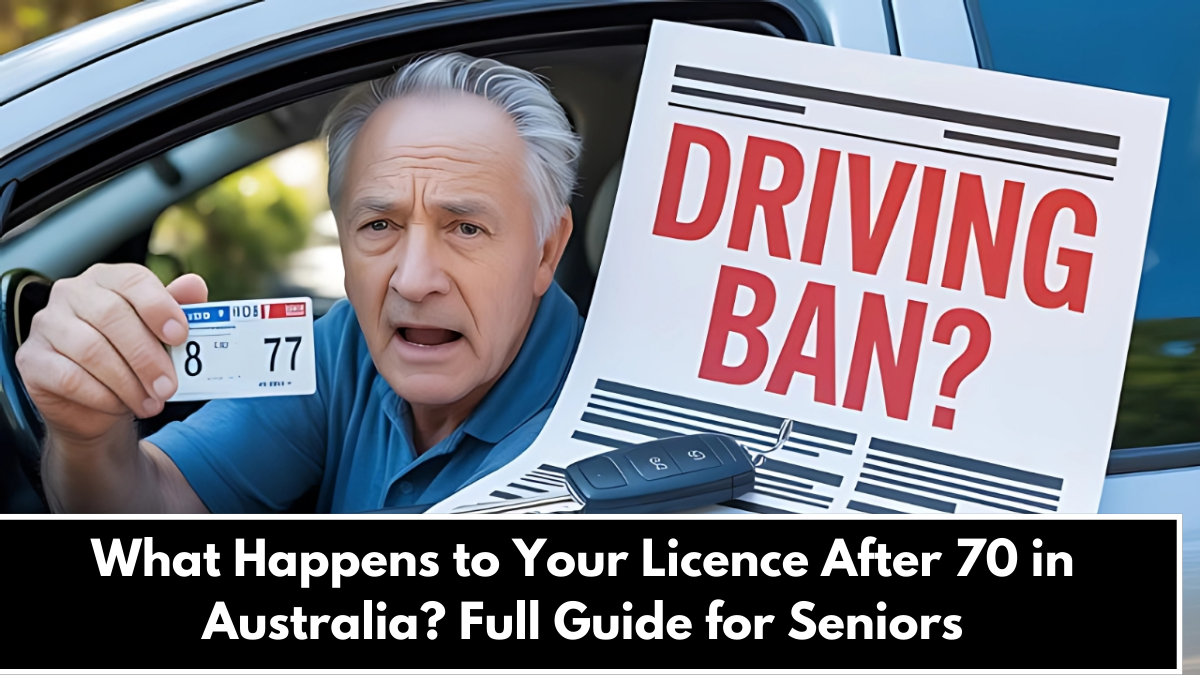In Australia, driving is not only about mobility but also independence. For many senior citizens, the ability to drive means freedom to visit family, attend medical appointments, and stay active in the community. However, once a driver turns 70, the licence renewal process changes. Depending on the state or territory, older drivers may need to pass medical tests, vision checks, or on-road driving assessments. These rules are designed to ensure safety for both senior drivers and others on the road. Understanding how licence cancellation or renewal works after 70 can help older Australians stay prepared and confident.
Licence Renewal and Medical Checks for Seniors
When drivers reach 70, renewal requirements vary across states. In New South Wales (NSW), drivers aged 70 and above must renew their licence more frequently and may be required to undergo medical assessments. In Queensland, annual medical certificates are needed for drivers over 75. In Victoria, there is no specific age-based test, but authorities may request medical evidence if needed.
Medical checks usually focus on eyesight, reaction times, and overall health conditions that could affect driving ability. Doctors provide reports to the licensing authority to confirm whether the person is fit to continue driving. In some cases, seniors may be offered a restricted licence that allows them to drive only within certain distances or times of day. This ensures independence while reducing risks on busy highways or nighttime driving.
Licence Cancellation and Alternatives for Senior Drivers
If a senior fails medical or driving tests, the licensing authority can suspend or cancel their licence. While this may feel discouraging, it is a step taken for road safety. Licence cancellation does not mean the end of independence. Many seniors turn to alternatives like community transport, senior ride-sharing services, or public transport options that often have discounts for older citizens.
In fact, planning ahead for this possibility can make the transition easier. Families are encouraged to discuss transport options with older members early, so they do not feel isolated when they stop driving. Some states also allow seniors to switch to a Photo ID card once their licence is cancelled, ensuring they still have official identification.
Driving after 70 in Australia comes with new responsibilities, but it doesn’t have to mean the end of independence. Regular medical checks, renewal processes, and support systems are there to protect both seniors and other road users. While licence cancellation can be challenging, understanding the rules and preparing for alternative transport can help seniors stay active and connected. By staying informed, senior drivers can continue enjoying safe journeys for as long as possible.
FAQ’s:
1. Do all drivers lose their licence at 70 in Australia?
No, licences are not automatically cancelled at 70. Instead, drivers may face medical checks or renewal requirements, depending on the state.
2. Which states in Australia require seniors to take medical tests?
NSW requires medical assessments from age 70, while Queensland requires annual medical certificates from age 75. Rules differ by state.
3. Can seniors still drive if they have health problems?
Yes, if a doctor confirms they are safe to drive. In some cases, seniors may be given restricted licences with driving limits.
4. What happens if a senior fails their driving test or medical check?
Their licence may be suspended or cancelled. However, they can appeal decisions or switch to non-driving ID cards for identification.
5. What transport options are available if a senior loses their licence?
Seniors can use public transport, community transport services, or ride-share programs, many of which offer discounts for older citizens.



1 thought on “What Happens to Your Licence After 70 in Australia? Full Guide for Seniors”